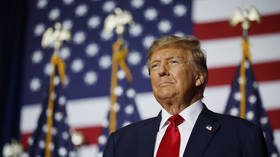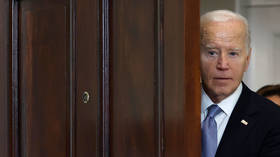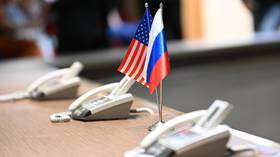Fyodor Lukyanov: Trump’s return would be the EU’s worst nightmare

If I wanted to ape the mood of erstwhile Soviet political essays, I’d write something like this: “The loud echo of gunshots in Pennsylvania resounded across the Atlantic…” You can argue about the appropriateness of using a stylebook long consigned to history, but it’s the truth of the matter.
Across the European Union, they‘re in shock at what is happening in the United States. In the past two weeks alone, first the uproar over President Joe Biden’s embarrassment in the debate, and now the attempted assassination of Donald Trump, which has disrupted the entire election campaign and given the Republican a head start.
To be fair, it should be noted that Trump has not yet won the race – the most acute phase of the struggle has yet to come, and it is impossible to predict what might happen. It’s worth remembering the lessons of 2020. In the spring, almost no one doubted the extravagant president would win a second term, but the pandemic messed up everything and cost him the White House. We must assume that Trump and his strategists have not forgotten this experience, and won’t relax. But objectively, the conditions are now favorable.
The EU is at a loss. In the Old World, Trump has been demonized to the maximum extent possible. With the exception of Hungarian Prime Minister Viktor Orban, no one in the Western European nomenklatura can boast productive contacts with the likely future American capo di tutti i capi. Macron once tried, but without much success. And virtually all of the bloc has joined in a general lament about Trump: God forbid he comes back!
Why is Trump causing such consternation? After all, the four years of his presidency from 2017-2021 didn’t lead to a catastrophe in transatlantic relations. The former property developer’s very peculiar style, to put it mildly, is undoubtedly repugnant to Western Europe’s pompous and snobbish elite, but it’s their job to communicate with all partners. Trump’s demands to rebalance trade and economic relations in favor of the US and to increase military spending have been quietly incorporated into the platform of his arch-rival Biden. Under the Democrat, a blatantly protectionist law has been passed that’s hurt EU interests, and spending on the war in Ukraine has also hit pocketbooks. There seems to be no reason to expect further attacks, Trump is fixated on money issues.
Western Europe’s fears have to do with something else – an uncertainty of a much more general nature. In 2022, the EU bet on America by refusing to take an independent line on the Ukraine conflict. Beyond the rhetoric, NATO’s “unprecedented unity,” in practice, means that the course is set by the strongest member state, both militarily and politically. And the Old World did not do this under pressure from its senior partner, but voluntarily, because it didn’t have – and didn’t want to have – its own position. One can speculate for a long time about what options the Western Europeans had, if any, but it does not matter any more – the decision was made despite the obvious costs.
Scaremongering about Trump 2.0 pulling out of NATO, withdrawing American troops from Europe, or drastically cutting off Ukraine’s oxygen supply is election propaganda. Trump can’t do any of these things, even if he wanted to (which is not the case), including quickly changing his stance in support of Kiev. But a change in the system of priorities is likely, in which the broad European continent may be given a less privileged place. In practice, this means that the EU will be much more on its own. And accordingly, it will have to deal with a number of fundamental problems, including those related to the future of the Ukraine issue. But the bloc and its key countries are not ready for such strategic autonomy.
The Western European line over the past two-and-a-half years has been to prove the collective’s usefulness and necessity to Washington. Not only on the Ukraine issue, but also with regard to other US interests, for example in East Asia and the Pacific Basin as a whole. Hence the fervent desire to transform NATO into a structure with global reach, which was reaffirmed at the summit just held in the American capital.
At the same time, the EU states, especially the Germans and the French, are not enthusiastic about the economic confrontation with China that the US is pushing for. Under Trump, this policy will clearly be strengthened. Western Europe’s ability to defend its economic interests while maintaining a close geopolitical attachment with the US now seems rather limited. But even at the height of the Cold War in the past century, the region’s powers managed to go their own way when they felt some of their economic needs demanded.
The reorientation of the US began almost a quarter of a century ago. The last devoutly Atlanticist president was Bill Clinton; all the others were more or less explicitly oriented towards other goals. The EU, on the other hand, has not used the time to reorient itself towards ‘strategic autonomy’, whatever that may mean. And the Old World is not ready for a US president who could move decisively away from the hitherto set-in-stone liberal-Atlantic consensus, either in form or in substance. But it seems that this president will have to be tolerated, nevertheless.
















